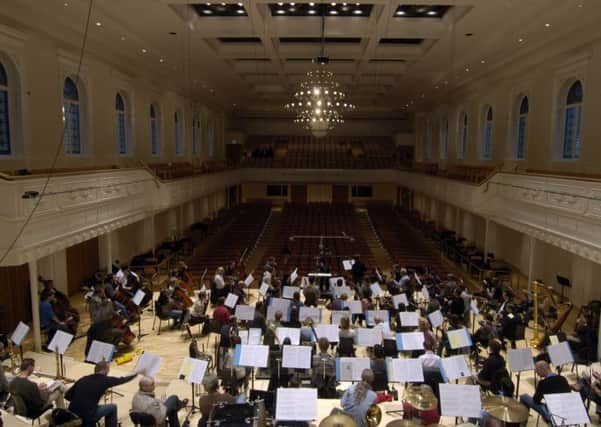Classical review: BBC SSO, Glasgow


BBC SSO: Osborne Plays Beethoven
City Halls, Glasgow
***
Granted, it’s not the easiest symphony to bring off convincingly, for despite the obvious thematic bookends – the ominous opening trumpet motif that returns more affirmatively in the finale – a singular sense of purpose, even in the broadest sense, is hard to achieve. But then, Schumann was in a pretty desperate mental state prior to writing it.
The problem with this performance lay in Manze’s tendency to make too much out of it – over-emphatic cadences, unnecessary hiatuses, edginess within the ensemble, and a slow movement that seemed emotionally to draw to a halt.
Advertisement
Hide AdInterestingly there was none of that with pianist Steven Osborne centre stage in Beethoven’s Piano Concerto No 3. A more controlled physicality, by Manze as well, filled the opening movement with virility and fire, which Osborne immediately countered with his calm, calculated playing of the slow movement and the lustrous exuberance of the finale.
That followed the evening’s opening work, Copland’s atmospheric Quiet City, which featured SSO principals Mark O’Keeffe (trumpet) and James Horan (cor anglais) in the beautiful dialogue that weaves its way around the moody orchestral strings. Some questionable intonation gave the opening a sense of unease, as did the orchestra’s initially tentative response to Manze. But all that quickly dispelled, and the musical cityscape glowed.